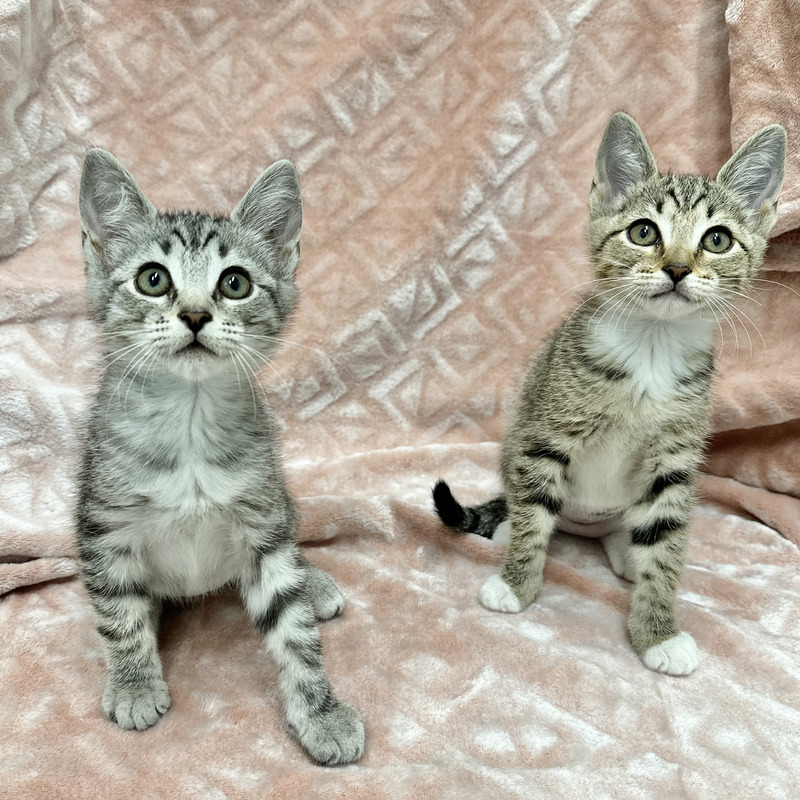Loving and living with a FELV cat

Wednesday, June 25, 2025
So you're adopting an FeLV cat or kitten. Thank you! Adopting a cat with FeLV is an act of love. Friends of Strays is one of few shelters who save them; we believe that FeLV cats deserve to experience a loving home, just like any other pet. Learn more about loving and living with an FeLV+ cat below.
What is FeLV?
FeLV stands for feline leukemia virus. It is viral infection of cats that affects a cat's immune system and bone marrow.
How do cats get FeLV?
The virus is contagious, and typically spread from infected cats to non-infected cats through prolonged close personal contact, usually involving saliva. It can be spread by grooming, shared food bowls, shared litter boxes, bites and other forms of close contact. It can also be transmitted from a mother cat to her kittens. It is NOT highly contagious, and most adult cats develop natural resistance to the virus. Kittens are more likely to be susceptible to the virus. The virus does not live long outside of a cat host, so spreading FeLV via human clothing and hands is very unlikely.
Can humans, dogs, or other pets catch FeLV?
NO. FeLV is a disease of felines only.
What are the signs of FeLV infection?
There are no specific signs of FeLV infection, and most FeLV-positive cats live for many months to years without showing any signs of illness. Cats with FeLV have weaker immune systems, so they are more prone to infections such as upper respiratory infections, dental disease, anemia, and cancers. Most cats with FeLV live normal lives, but their life span tends to be shorter. Adult cats can live several healthy years with the illness. The average lifespan of a kitten with FeLV is only 2-3 years.
How do I know if my cat has FeLV?
The only way to know if your cat is FeLV-positive is to have your veterinarian run an ELISA test. Testing positive means that the virus is circulating in the cat's blood. It does not mean that the cat will be permanently infected. Further testing is needed. To find out if it is a persistent infection, an IFA test can be sent to a lab. A positive test indicates that the cat is positive for FeLV and always will be. If the test is negative, there is a chance the cat can fight off the infection, and further testing is needed. Please contact a veterinarian to guide you through the testing process.
Can FeLV be treated? What can be done to prevent the spread of FeLV?
There is no cure for FeLV, so treatment of FeLVpositive cats involves supportive care.
Since there is no cure, prevention is the best treatment for FeLV. If an FeLV-negative cat is not around a FeLV-positive cat, the FeLV-negative cat will not get the virus. Keeping cats indoors should prevent exposure. Also, all cats coming into the household should be tested before introducing them to your cats. There is a vaccine for FeLV, which is recommended for all FeLV-negative cats/kittens that may come into contact with an FeLV-positive cat. The vaccine is not perfect, and reduces the risk of disease by about 90%. It must be repeated yearly. The vaccine is NOT effective for any cat or kitten that is already FeLVpositive.
Can FeLV-negative and FeLV-positive cats live together?
An FeLV-negative cat and FeLV-positive cat could live in the same house, but there is a risk of the virus spreading if they are in close contact. The risk can be lowered by vaccinating the FeLV-negative cat against the virus, but this does not guarantee that the infection will not spread. Kittens are at highest risk of acquiring FeLV, and no kitten under 1 year of age that is FeLV-negative should be exposed to a cat that is positive. Friends of Strays does NOT recommend housing FeLV-positive and FeLV-negative cats together.
Can FeLV-positive cats have a good life?
YES! FeLV-positive cats can live perfectly happy lives. People who have FeLV-positive cats just need to be aware that those cats may have a shorter life span and that they should be taken to a veterinarian as soon as a problem is noticed. FeLV-positive cats should remain indoor-only to prevent exposure to other illnesses. Many people who adopt and care for FeLV-positive cats describe it as a positive, deeply rewarding experience, and that they would gladly do so again.

